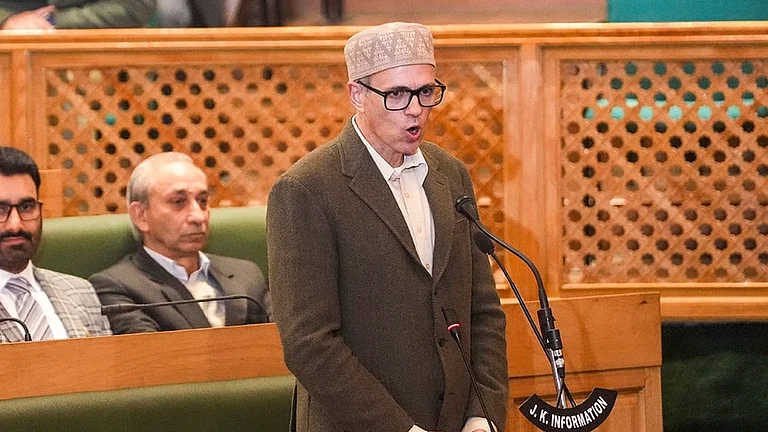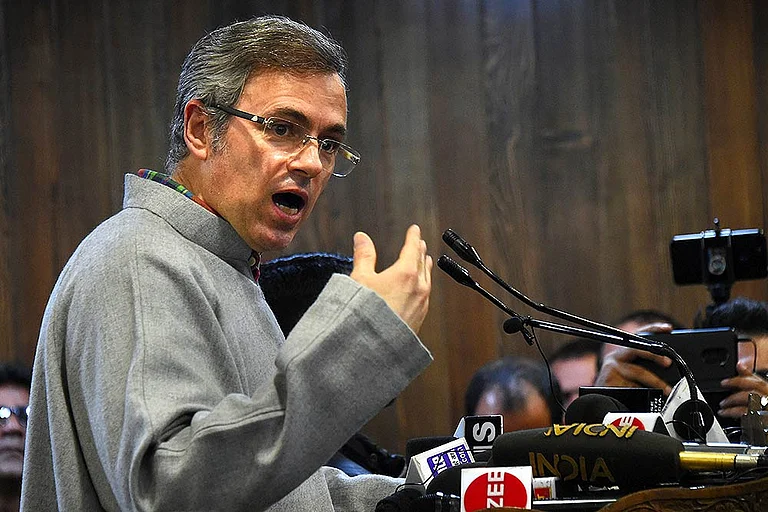After the success of the Jammu and Kashmir assembly elections, the president's rule in the union territory has been revoked. The announcement from the Ministry of Home Affairs comes days after National Conference Vice President Omar Abdullah met with Lieutenant Governor Manoj Sinha and staked his claim at forming the government.
Lieutenant Governor Manoj Sinha on Monday invited National Conference leader Omar Abdullah to take oath as first chief minister of the union territory of Jammu and Kashmir on October 16.
As per the official gazette notification issued by the Home Affairs ministry - "In exercise of the powers conferred by Section 73 of the Jammu and Kashmir Reorganisation Act, 2019 (34 of 2019) read with Articles 239 and 239A of the Constitution of India, the order dated the 31st October, 2019 in relation to the union territory of Jammu and Kashmir shall stand revoked immediately before the appointment of the chief minister under Section 54 of the Jammu and Kashmir Reorganisation Act, 2019".
In the J&K assembly polls, the National Conference emerged victorious with 42 seats. Due to the alliance with the Indian National Congress, the party crossed the majority mark of 46 and staked its claim for the new government.
Following the NC's win, Omar Abdullah was chosen as the alliance leader and as the next chief minister of Jammu and Kashmir.
Central Rule Removed After 8 Years
While this was not the first time the president's rule had been imposed in Jammu and Kashmir, after the elections, hope remains that this will be the last time.
Following the resignation of Mehbooba Mufti in June 2017, the Centre's rule had been imposed in Jammu and Kashmir.
After this, Jammu and Kashmir saw governor's rule and then President's rule for the coming years and these were extended multiple times through parliamentary approval.
However, in 2019, Jammu and Kashmir's statehood was scrapped with the abrogation of Article 370 of the Indian Constitution.
Following this, Central rule was once again imposed from October 31, 2019 onwards and the former state was divided into the union territories of Jammu and Kashmir, and Ladakh.
The return of Central rule came after the parliament enacted the Jammu and Kashmir Reorganisation, 2019 on August 5, 2019, the same day Article 370 was abrogated.
It is to be noted that Article 356 of the Constitution, under which President's rule is imposed in a state, is not applicable in union territories.
Hence, on October 31, 2019, when Jammu and Kashmir turned into a union territory, President's rule was withdrawn.
However, after this, the President issued a notification stating that central rule will continue for an indefinite period through the lieutenant governor (LG) in the union territory of Jammu and Kashmir.
Since then, LG Manoj Sinha has been the top government official in the union territory. However, in December 2023, after the Supreme Court upheld the abrogation of the Article 370, the apex court called on Centre and the Election Commission to conduct elections and form a new government for Jammu and Kashmir.
Additionally, the court also ordered that statehood of J&K should be restored as soon as possible.




















.png?w=200&auto=format%2Ccompress&fit=max)







